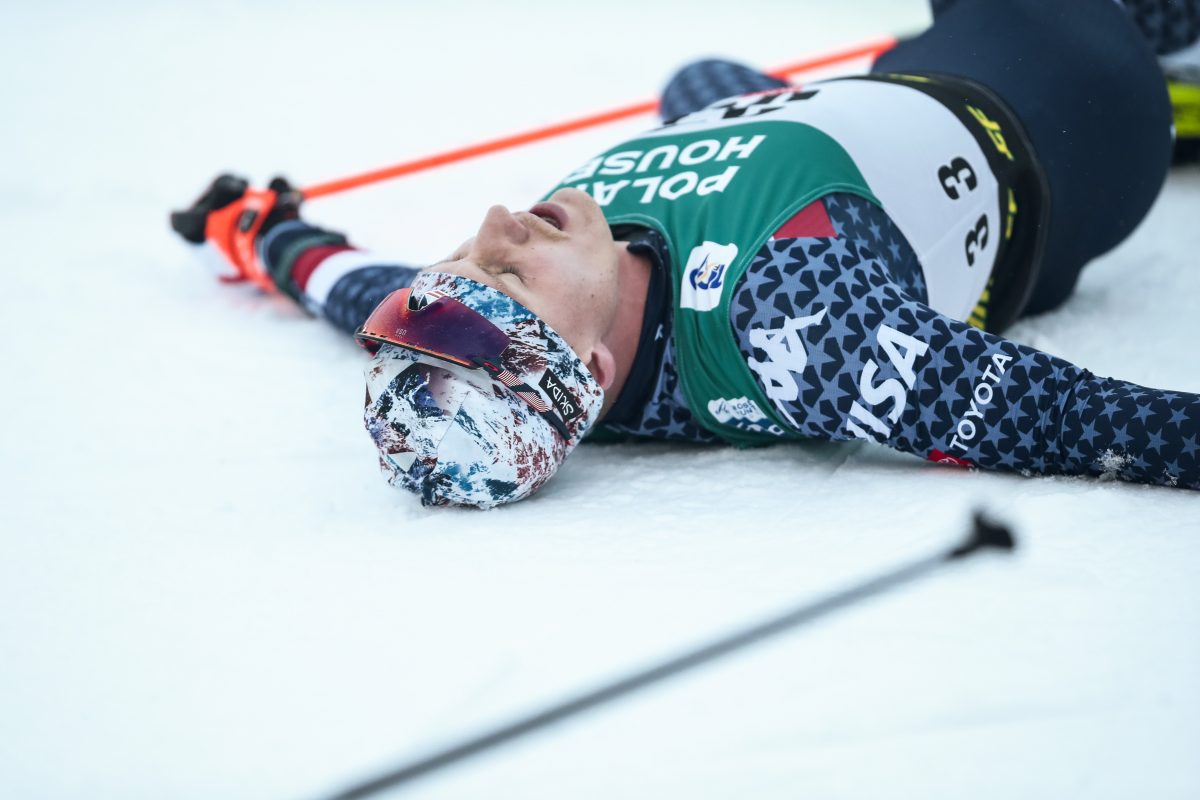 In this episode, hosted by FasterSkier contributor Rachel Perkins, we dive into the issue of Relative Energy Deficiency in Sport (RED-S). This condition was formerly known as the female athlete triad, which was described as inadequate energy intake, the loss of menstruation (amenorrhea), and decreased bone mineral density. The name was changed to include males, who are also affected, and to expand beyond the three symptoms originally included. Though not quite the same, the condition is closely linked with eating disorders.
In this episode, hosted by FasterSkier contributor Rachel Perkins, we dive into the issue of Relative Energy Deficiency in Sport (RED-S). This condition was formerly known as the female athlete triad, which was described as inadequate energy intake, the loss of menstruation (amenorrhea), and decreased bone mineral density. The name was changed to include males, who are also affected, and to expand beyond the three symptoms originally included. Though not quite the same, the condition is closely linked with eating disorders.
This topic has seen a lot of buzz following a November opinion piece in the New York Times where former high school running phenom Mary Cain shared her story of abuse by her coach, Alberto Salazar, at the Nike Oregon Project. While trying to get down to the weight he deemed optimal for her, she lost her period, her performance decreased, and she was littered with stress fractures.
Further concerns arose a few weeks later when Ingvild Flugstad Oestberg and Frida Karlsson were pulled from their World Cup starts after not meeting team health standards for BMI and bone density, presumably due to under eating.
We speak with licensed professional counselor and two-time Olympian Holly Brooks, registered sports dietician and author of “Finding Your Sweet Spot: How to Avoid RED-S (Relative Energy Deficit in Sport) by Optimizing Your Energy Balance” Rebecca McConville, and long-time coach turned voice of World Cup cross country skiing and biathlon, Chad Salmela.
This panel unpacks the misunderstanding that RED-S is an exclusively female phenomenon and how the climate in sport influences the prevalence of this condition, and offers suggestions to shift from a results focused climate in sport to a positive, informed, healthy, and athlete centric program.
Here are links to the resources and articles mentioned in this episode:
Jessie Diggins Eating Disorder Activism
Lauren Fleshman’s New York Times Opinion Piece “I Changed My Body for My Sport. No Girl Should.” and letter to her younger self, which was posted to MileSplit.
The WithAll Foundation and the “What To Say” campaign, which offers suggestions for talking to food and body positive phrases to include in conversations with kids and athletes.
HBO Documentary “The Norwegian Way” which details the Norwegian development program, in particular the omission of results in youth skiing before the age of 12.
The IOC Periodic Health Evaluation statement regarding more regular health screenings, including bone density measurement and blood laboratory work.
The National Eating Disorder Association (NEDA) “Coaches & Trainers’ Toolkit”
- Chad Salmela
- eating disorders
- female athlete triad
- Finding Your Sweet Spot: How to Avoid RED-S (Relative Energy Deficit in Sport) by Optimizing Your Energy Balance
- Frida Karlsson pulled from competition
- Holly Brooks
- Ingvild Flugstad Ostberg
- Ingvild Flugstad Ostberg health
- IOC Periodic Health Evaluation statement
- Jessie Diggins eating disorder
- Lauren Fleshman
- Mary Cain
- New York Times Opinion
- Rebecca McConville
- RED-S
- Relative Energy Deficiency in Sport
- sports nutrition
Rachel Perkins
Rachel is an endurance sport enthusiast based in the Roaring Fork Valley of Colorado. You can find her cruising around on skinny skis, running in the mountains with her pup, or chasing her toddler (born Oct. 2018). Instagram: @bachrunner4646



